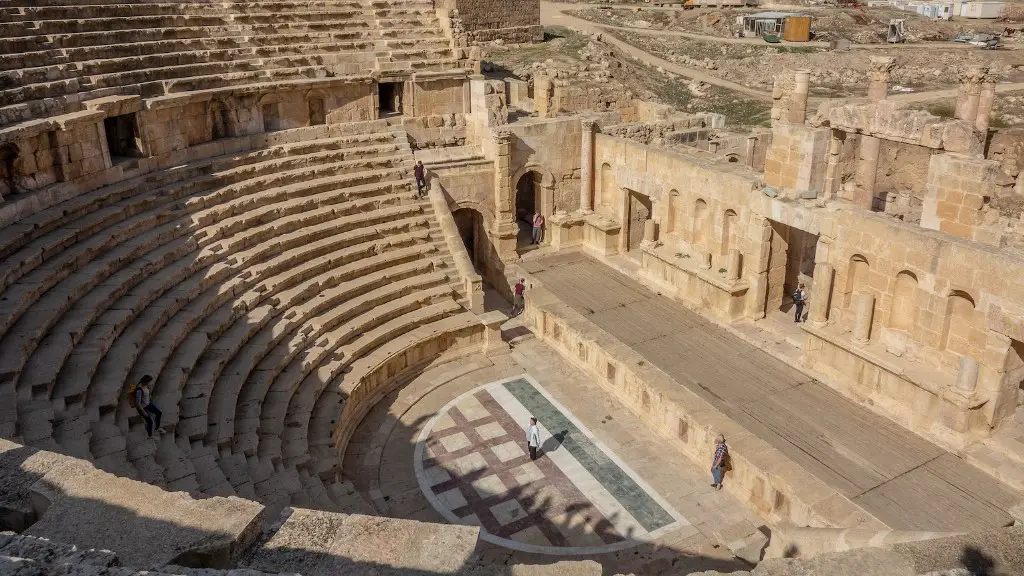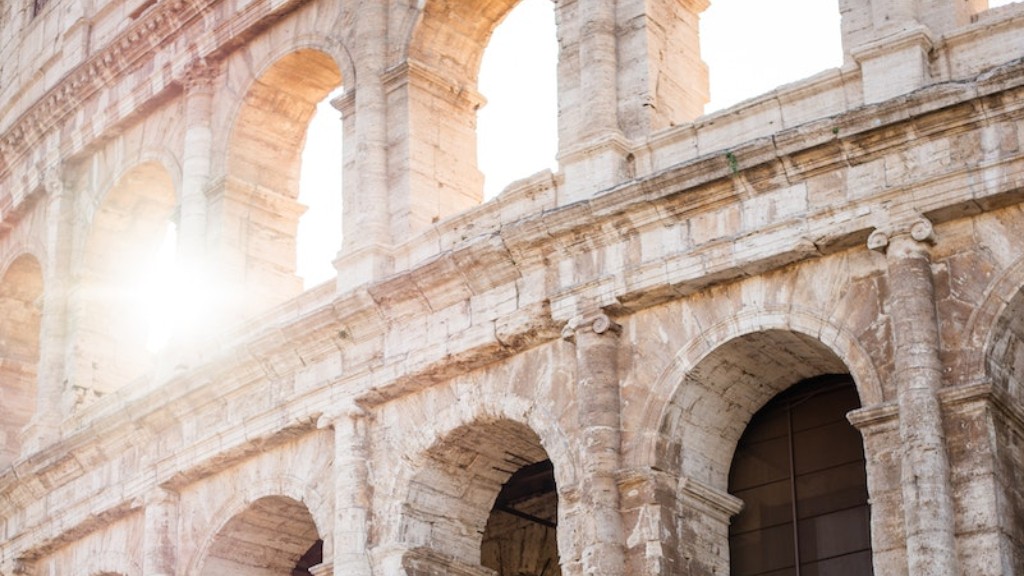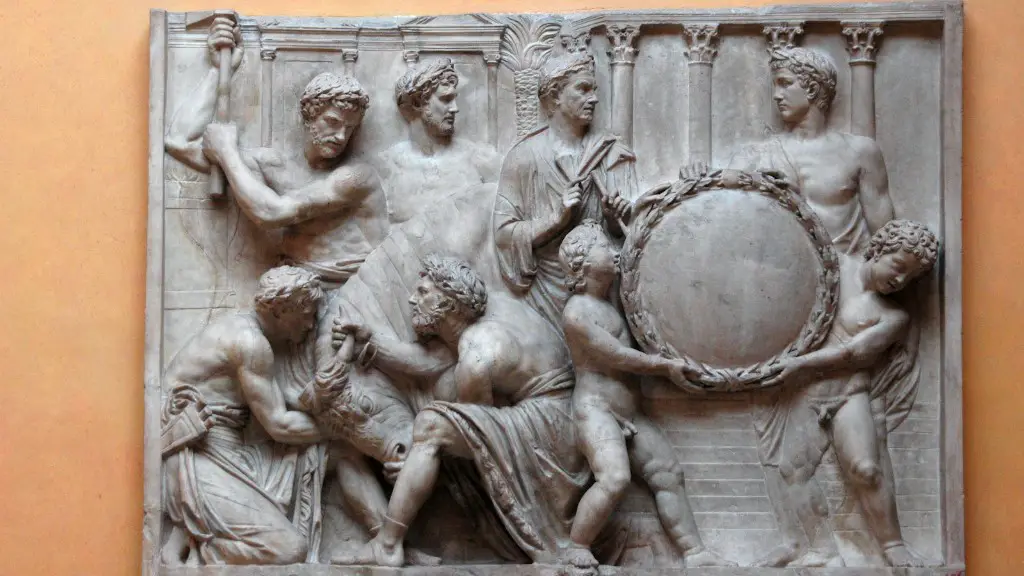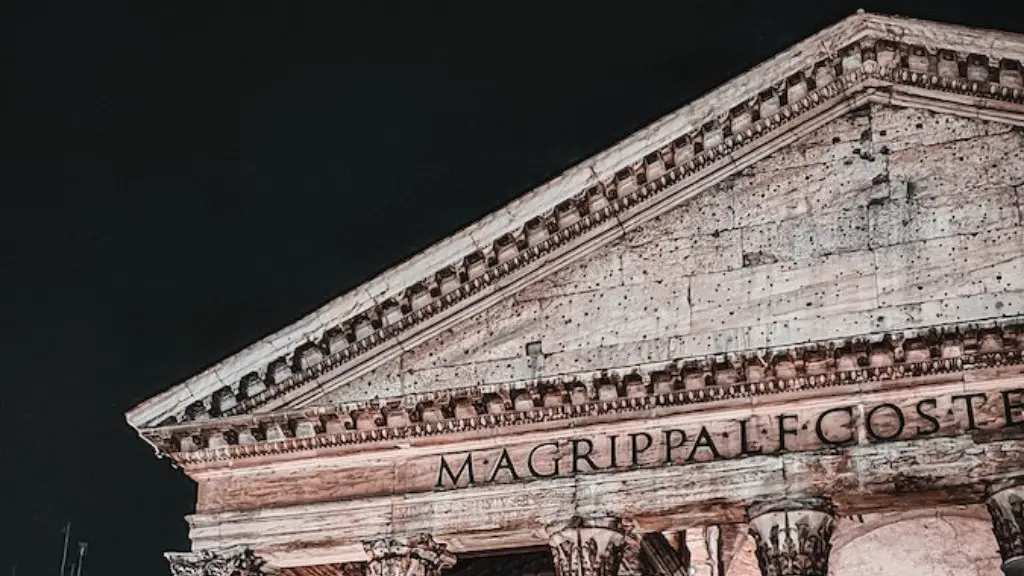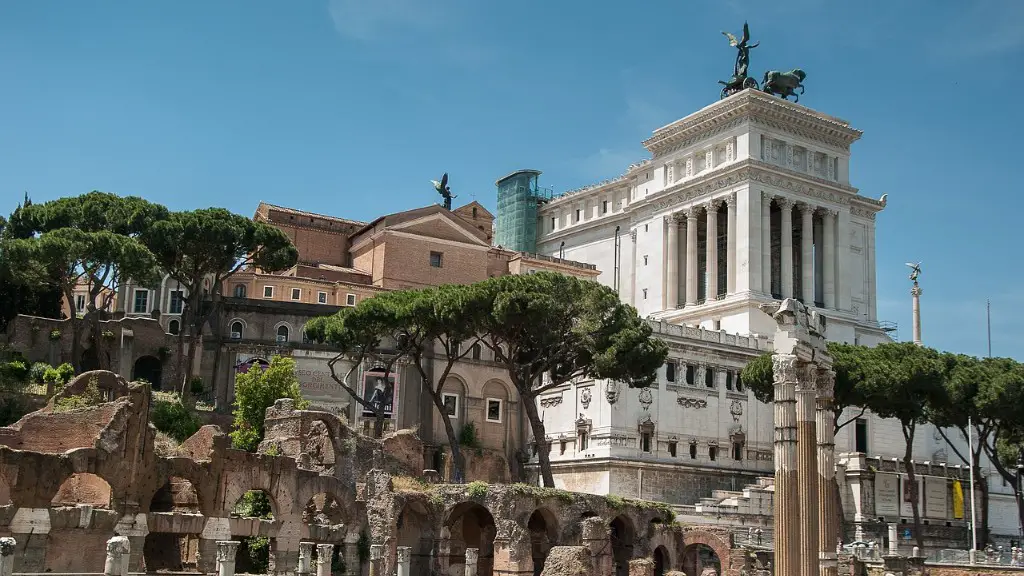The Roman religion famously involved the worship of a large pantheon of gods and goddesses. The most famous of these were probably Jupiter, Juno and Minerva, who were worshipped as the Capitoline Triad in a temple on Capitoline Hill; Mars, the god of war; Venus, the goddess of love; and Mercury, the messenger god. However, there were literally hundreds of other lesser known deities that were honoured in temples and shrines across the city of Rome and the Roman Empire.
The ancient Romans worshipped a pantheon of gods and goddesses, including Jupiter, Juno, Minerva, and Mars.
How many gods did Romans worship?
The Deii Consentes were the most important group of deities in the Roman pantheon. They were the twelve gods and goddesses who presided over the various aspects of Roman life. Each god or goddess had their own sphere of influence and their own area of responsibility. The Deii Consentes were responsible for the protection and well-being of the Roman people. They were invoked in times of need and their help was sought in all matters of importance.
The 12 Roman Gods were: Jupiter, Juno, Mars, Mercury, Neptune, Venus, Apollo, Diana, Minerva, Ceres, Vulcan, and Vesta. Jupiter held thunderbolts in his hands, which he could throw from the sky.
Who are the 7 major Roman gods
The ancient Romans believed in a pantheon of gods and goddesses who ruled over different aspects of their lives. These gods and goddesses gave the Romans the confidence to conquer, succeed, and prosper. Jupiter, the king of the gods, was the god of the sky and of thunder. Juno was the goddess of marriage and the protector of women. Neptune was the god of the sea. Minerva was the goddess of wisdom and war. Mars was the god of war. Venus was the goddess of love and beauty. Apollo was the god of the sun. Diana was the goddess of the moon.
The ancient Romans worshipped many gods and spirits. Each river, tree, field, and building had its own spirit, or numen. Worshipping more than one numen was a part of early Roman culture.
Did the Romans worship Zeus?
Jupiter was the main god in Roman culture and was responsible for overseeing all aspects of life. He was thought to have originated from the Greek god Zeus. Juno was the goddess of marriage and childbirth, and Minerva was the goddess of wisdom and war.
Jupiter was the most powerful god in Roman mythology. He was adopted from the Greek god Zeus, and was believed to be the king of all gods who had the final word and ruled all of life in heaven and earth. He would bring order by the strike of his thunderbolt.
Who is the Roman equivalent of Zeus?
Jupiter is the king of the gods and rules over Mount Olympus. He is the god of thunder and lightning, as well as law and order.
Zeus was the chief deity of the pantheon in ancient Greek religion. He was a sky and weather god who was identical with the Roman god Jupiter. Zeus was the son of Cronus and Rhea, and the youngest of their children. He overthrew Cronus and gained control of the universe. Zeus was the ruler of Mount Olympus, the home of the gods. He was also the god of thunder, storms, and lightning.
Is Zeus a pagan god
It is fascinating to see that the ancient Greek god Zeus is still being worshipped at an ancient temple in Athens, despite the fact that the ancient Greek religion was outlawed by the Roman empire centuries ago. This shows the enduring power of paganism and the deep connection that many people still feel to the ancient gods and goddesses. It is also a reminder of how important it is to protect our freedom to worship as we choose, without interference from the government or other authority figures.
The original Olympian deities were the children of the Titans Cronus and Rhea. These six deities were the foundation of the ancient world and were responsible for various aspects of human life. Zeus was the king of the Olympians and was responsible for the weather, Poseidon was the god of the sea, and Hades was the god of the underworld. Demeter was the goddess of fertility, while Hestia was the goddess of the hearth.
Who is the oldest deity?
Inanna is the goddess of love and war, and is one of the most popular deities in the ancient Sumerian pantheon. She is often depicted as a beautiful woman with long dark hair, and is associated with the planet Venus. Inanna is also known as the “Queen of Heaven” and is one of the most powerful goddesses in the Sumerian pantheon.
The Greek pantheon is typically referred to as “the 12 Olympian Gods”, which includes the following gods: Zeus, Poseidon, Hera, Hestia, Demeter, Hades, Apollo, Artemis, Hermes, Athena, Hephaestus, Aphrodite, and Ares. Dionysus is often included as well, as he is a Demi-god and became part of their group on Olympus over time.
When did Romans stop believing in gods
The Romans were very strict about honoring their traditional gods and anyone who refused to do so was persecuted. This continued until 312 AD when the Roman emperor Constantine became a convert to Christianity. After that, people were no longer persecuted for their religious beliefs.
Most ancient cultures had different names and even different stories about the same gods. So as the Romans conquered the Greeks they adopted Greek Mythology and replaced the gods’ names with traditional Roman gods’ names. This created a confusing situation in which the same god could be known by two or more different names.
What was the Romans first religion?
The ancient Romans believed in many gods and goddesses, each with their own unique powers and responsibilities. The best known of these are perhaps the triumvirate of Jupiter (the king of the gods), Juno (the queen of the gods), and Minerva (the goddess of wisdom and war). However, there were many other lesser known deities too, such as Vulcan (the god of fire), Pluto (the god of the underworld), and Neptune (the god of the sea).
With the introduction of Greek mythology, the Roman Orcus became the Greek Hades, and all the Greek notions with regard to a future state now obtained with the Romans, who worshipped Hades under the name of Pluto, his other appellations being Dis (from -dives-, rich) and Orcus from the dominions over which he ruled.
Did the Romans worship Athena
Athena is an ancient Greek goddess who was widely worshipped in her time. She is now strongly associated with Athens, to which she gave her name. She is known as the city goddess, Athena Polias (“Athena, Guardian of the City”). She accompanied the ancient city-state’s transition from monarchy to democracy.
Hercules was a popular figure in Roman mythology and culture. He was seen as a divinized hero and was often incorporated into the legends of Rome’s founding. The Romans adapted Greek myths and the iconography of Heracles into their own literature and art, but the hero developed distinctly Roman characteristics.
Warp Up
The ancient Romans worshiped a pantheon of gods and goddesses. The most prominent deities were Jupiter, Juno, and Minerva. Other popular gods included Mars, Mercury, and Venus.
There is no one answer to this question as the ancient Romans worshipped a large pantheon of gods and goddesses. However, some of the most popular and well-known Roman gods include Jupiter, Juno, Minerva, and Apollo.

